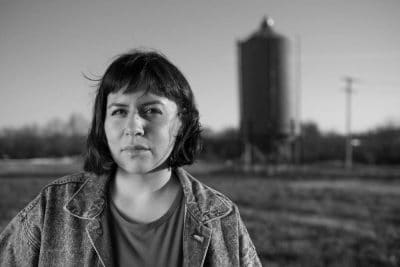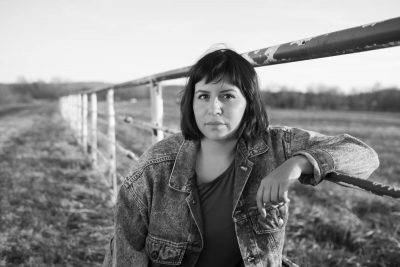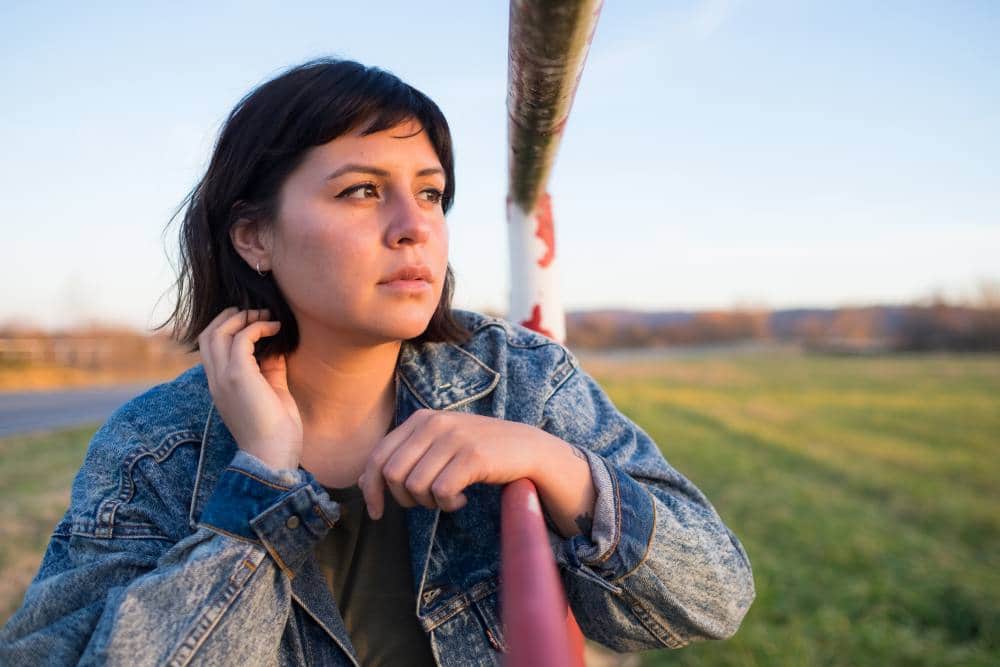Kalyn Fay is Making a Scene!
Making a Scene Presents an Interview with Kalyn Fay!

Oklahoma-bred songwriter Kalyn Fay has a voice that commands rapt attention, whether filling a theater or piercing the din of a dive bar. It’s a tenor timbre a first-time listener once aptly described as “butterscotch,” all rich and velveteen, bold, singular.
Fay’s been writing and recording her own music for as long as she’s had a story to tell. She got her feet wet at open mic nights, then at a residency in Tulsa with revered songwriter Tom Skinner. Since then, she’s lived more than her share of life: She’s loved and lost, voraciously pursued higher education, questioned her faith, walked the line between her upbringing and her Cherokee roots, and figured out how to process and express all that through her art. She’s traveled. She’s come back home. She’s left again.
Good Company, Fay’s follow-up to 2016’s Bible Belt (Horton Records) is an exploration on the immutability of home. It’s a reverent portrait of the prairie and the people in it, what she calls a “love letter to the place I have known best,” made all the more poignant by the songwriter’s recent departure to Arkansas for a graduate fine arts degree.
“My ties to Oklahoma and Tulsa are extremely strong,” she says. “Sometimes I feel unable to separate how I describe myself and my music from the land. I wouldn’t be writing the music I write had it not been for a foundation in Tulsa.”

For the recording, she tapped into Tulsa, Oklahoma’s deep well of musical talent, including multi-instrumentalist and producer Jesse Aycock (Hard Working Americans, Secret Sisters). Kalyn Fay’s startlingly rich voice is front and center throughout, a bold whisper blanketing the delicate, thoughtful instrumentation spearheaded by Aycock.
“Good Company” patiently guides listeners through lamentations on ex-lovers, identity, redemption. It’s a solemn goodbye to a version of herself she’s not quite ready to abandon, a fond recollection marked by a still-tender pain.
“We’re all just looking for something / something to love, something to leave,” she sings on the title track. There’s a faint choir singing along. They’re important, lifting up her melody, but just quiet enough to seem far behind her.
[amazon_link asins=’B01FTGQMQK,B07MS584HV,B01NAVH9NG,B01FTGPRCK,B0793MW1KX,B01FTGQ3NW,B079KB1QDZ,B079KBGGVV’ template=’ProductCarousel’ store=’maasc-20′ marketplace=’US’ link_id=’f366fc52-dc35-4a78-80d0-bb769ad775ac’]
Discover more from Making A Scene!
Subscribe to get the latest posts sent to your email.















































